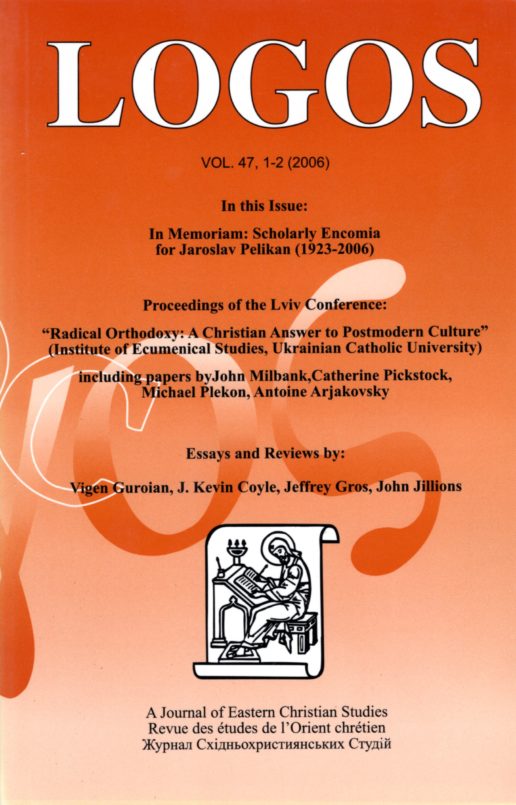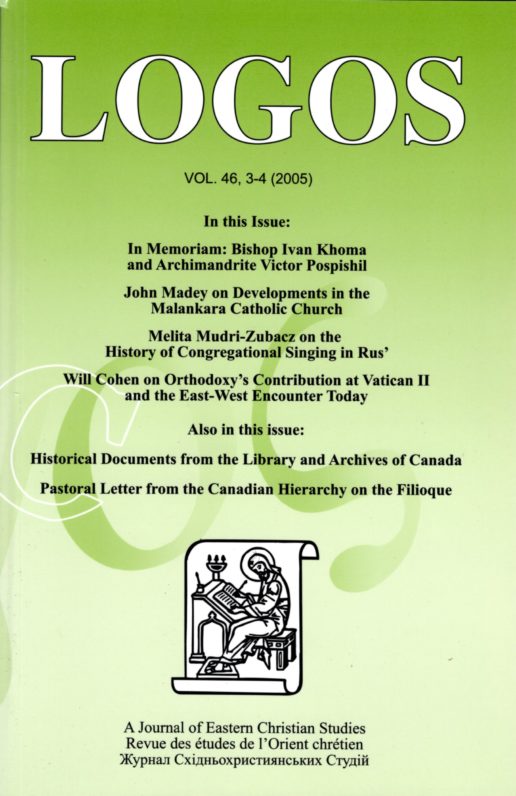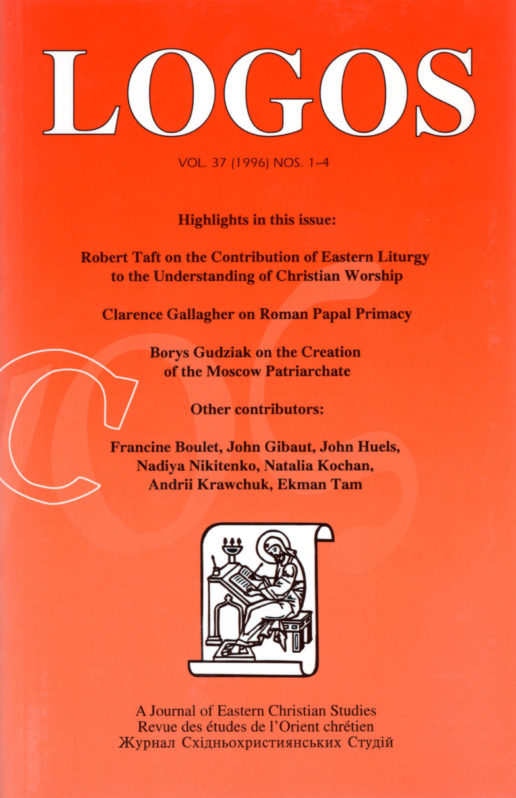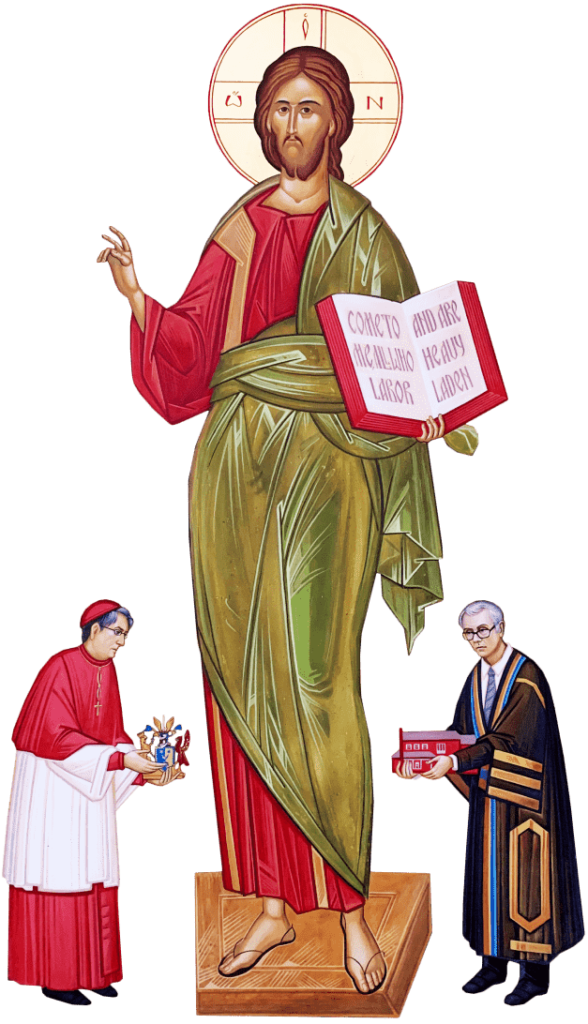Description
Table of Contents (PDF)
Editorial
From Sheptytsky to Shevchuk: The Maturation of Ecclesial Autonomy in the Catholic Church of Kyiv (PDF sample)
Andriy Chirovsky (1)
Archpriest Robert Anderson (1946–2010) (PDF sample)
Andriy Chirovsky and Adam DeVille (13)
Articles
Studying Ukrainian Greco-Catholics at World Youth Day: A Small Sample of Committed Young Adults from Western Canada (PDF sample)
Richard Rymarz (19)
Abstract
The Ukrainian Greco-Catholic Church (UGCC) faces a series of challenges in retaining the committed allegiance of younger members. With the weakening and disassociation of religious and cultural patterns the UGCC in Canada has seen a significant decline in membership. In this context a study of Ukrainian Greco-Catholic (UGC) young adults who went to World Youth Day 2008 provides an insight into the life, belief and practices of a special sub-group of the UGC population, namely those who are highly committed to the Church. This study examines the WYD pilgrims and argues that many of the factors that contribute to high levels of religious commitment are evident amongst pilgrims. The paper proposes that this pattern of religious affiliation may have significance for the pastoral outreach of the UGCC in Canada.
Резюме
Перед Українською Греко-Католицькою Церквою (УГКЦ) стоїть низка проблем щодо збереження відданої приналежності молодих членів. З ослабленням та відмежуванням релігійних і культурних течій, УГКЦ в Канаді відчула значне зниження кількості вірних. У цьому контексті дослідження молодих українських греко-католиків, які брали участь у Всесвітньому дні молоді 2008 р. дає уявлення про життя, віру та практикування цієї особливої підгрупи членства УГКЦ, а саме тих, хто щиро відданий Церкві. Це дослідження розглядає паломників Всесвітнього дня молоді та стверджує що багато факторів, котрі сприяють високому рівні релігійності, проявляються саме серед цих паломників. Ця стаття показує, що закономірність цих факторів релігійної приналежності може мати велике значення для пасторальної роботи з молоддю УГКЦ в Канаді.
Eastern Elements in Kierkegaard’s Eighteen Upbuilding Discourses (PDF sample)
Michael Plekon (35)
Abstract
The author, having published on Kierkegaard for over thirty years, here surveys the Eighteen Upbuilding Discourses and in so doing gleans many thematic elements common to Eastern (particularly Russian) theology, especially kenosis, theosis, and Bogochelovechestvo. With reference to the thought of Elisabeth Behr-Sigel, Paul Evdokimov, Sergius Bulgakov, Lev Gillet, Nicholas Cabasilas, Seraphim of Sarov, and the Greek Fathers – including Irenaeus of Lyons – the author sketches simultaneously a vision of God in Kierkegaard and a vision of Kierkegaard himself that both run counter to oft-heard notions of a despotic deity and a despondent Dane. Instead, what emerges from the Eighteen Upbuilding Discourses as well as the Works of Love is a God of love whose kenotic self-emptying is manifested in His limitless goodness and eternal giving of every good and perfect gift from above. The author concludes with some reflections on Kierkegaard’s methods as a theologian, and here also certain features common in Eastern theological methods may be glimpsed.
Резюме
Автор, котрий уже понад тридцять років публікується на тему К’єркеґора, цього разу досліджує „Вісімнадцять повчальних бесід” і водночас збирає багато тематичних елементів, спільних для східного, а особливо російського богослов’я, зокрема kenosis, theosis, та „боголюдськість”. Посилаючись на думку Елізабет Бер-Сіжел, Павла Євдокімова, Сергія Булґакова, Лева Жілле, Ніколаса Кавасила, Серафима Саровського та грецьких отців, в тому числі Іринея Ліонського, автор в загальних рисах описує візію Бога у К’єркеґора та візію самого К’єркеґора, котрі заперечують поняття деспотичного Бога та пригніченого датчанина. Натомість із „Вісімнадцяти повчальних бесід”, а також із „Праць Любові” випливає Бог любові, чиє кенотичне самоспустошення проявляється в Його безмежній доброті та вічному зісланні всякого доброго давання і звершених дарів. Автор завершує роздумами щодо методів К’єркеґора як богослова, де також проглядаються окремі риси, властиві східно-богословським методам.
Baptismal Themes in the Byzantine Blessing of Waters on Theophany (PDF sample)
Nicholas Denysenko (55)
Abstract
The blessing of waters annually celebrated in the Byzantine rite on January 6, the Theophany feast, contains many baptismal themes. Most significantly, the main prayer of the water blessing, “Great are You,” is also used to bless the waters for baptism. Other aspects of the Theophany water blessing such as hymns, prayers, and the submersion of the cross into the water as the main liturgical gesture demonstrate the liturgy’s baptismal origins. A study of liturgical history and structures convincingly shows that until the tenth century, baptism was once a prominent part of the Theophany festal celebration. Christian faithful who participate in the Theophany water blessing are not re-baptized, but receive renewed baptismal blessings by drinking the blessed water, and receiving it by anointing and sprinkling. Thus, participants in the Theophany water blessing have a unique opportunity to annually return to Christ’s lifegiving baptismal font.
Резюме
Щорічне водосвяття, яке у візантійському обряді відбувається 6-го січня на Богоявлення, містить у собі багато тем спільних з обрядом хрещення. Вагомим є те, що основна молитва на посвячення води „Великий Ти” читається і під час посвячення води для хрещення. Інші частини Богоявленського водосвяття, наприклад стихири, молитви та занурення хреста у воду як основного літургійного жесту, свідчать про походження Богоявленського водосвяття від хрещення. Вивчення літургічної історії та структури переконливо демонструє, що аж до десятого століття хрещення було значною частиною святкування Богоявлення. Беручи участь у водосвятті, вірні не охрещуються наново, а отримують оновлення благословення хрещення через споживання свяченої води, а також через помазання та окроплення нею. Таким чином, учасники Богоявленського водосвяття мають унікальну можливість щороку повертатися до життєдайної хрестильниці Христової.
Notes, Essays, Lectures
How Charon’s Life was Entwined with the Christian East: Kniga Bytija Moego: Mémoirs Autobiographiques (PDF sample)
Vincenzo Poggi (89)
Logikē latreia (Romans 12:1) as a Definition of Liturgy (PDF sample)
Daniel Galadza (109)
Book Reviews
B. ter Haar Romeny, ed. Religious Origins of Nations? The Christian Communities of the Middle East (Leiden: Brill, 2010), vii + 366 pp.
Sebastian P. Brock (125)
A. Edward Siecienski, The Filioque: History of a Doctrinal Controversy (Oxford University Press, 2010), 368 pp.
Robert M. Haddad (128)
Barbara Skinner, The Western Front of the Eastern Church: Uniate and Orthodox Conflict in Eighteenth-Century Poland, Ukraine, Belarus, and Russia (De Kalb: Northern Illinois University Press, 2009), xvi + 295 pp.
John-Paul Himka (132)
Jonathan Riley-Smith, The Crusades, Christianity, and Islam (New York: Columbia University Press, 2008), 136 pp.
John Bequette (136)
Thomas Mathews, Byzantium: From Antiquity to the Renaissance (Yale University Press, 2010), 176 pp.
Emma Loosley (139)
Douglas M. Koskela, Ecclesiality and Ecumenism: Yves Congar and the Road to Unity (Milwaukee, WI: Marquette University Press, 2008), 174 pp.
Catherine E. Clifford (142)
Anna Lisa Crone, Eros and Creativity in Russian Religious Renewal: The Philosophers and the Freudians (Leiden and Boston: Brill, 2010), xiii + 364 pp.
Judith Deutsch Kornblatt (145)
Judith Deutsch Kornblatt, Divine Wisdom: The Wisdom Writings of Vladimir Solovyov, with annotated translations by Boris Jakim, Judith Deutsch Kornablatt, and Lary Magnus (Ithaca and London: Cornell University Press, 2009), xviii + 297 pp.
R. Slesinski (148)
John Chryssavgis, Remembering and Reclaiming Diakonia: The Diaconate Yesterday and Today (Brookline, MA: Holy Cross Orthodox Press, 2009), xii + 190 pp.
David Kennedy (151)
Paul M. Collins, Partaking in Divine Nature: Deification and Communion (London/New York: T & T Clark, 2010), 222 pp.
Daniel Keating (153)
Larry Wolff, The Idea of Galicia. History and Fantasy in Habsburg Political Culture (Stanford University Press, 2010), 504 pp.
Chris Hann (157)
Briefly Noted (163)
Contributors (191)
Language: English, French, Ukrainian
Softcover: vi, 210 pages
Publisher: The Metropolitan Sheptytsky Institute of Eastern Christian Studies
ISSN: 0024-5895
Digital File: $15
Size: 1 MB
A link to the PDF file of this title will be sent to you. The PDF file is for your personal use only. You may not copy, share, publish, or sell the file. Protected by copyright of the Metropolitan Andrey Sheptytsky Institute of Eastern Christian Studies.






